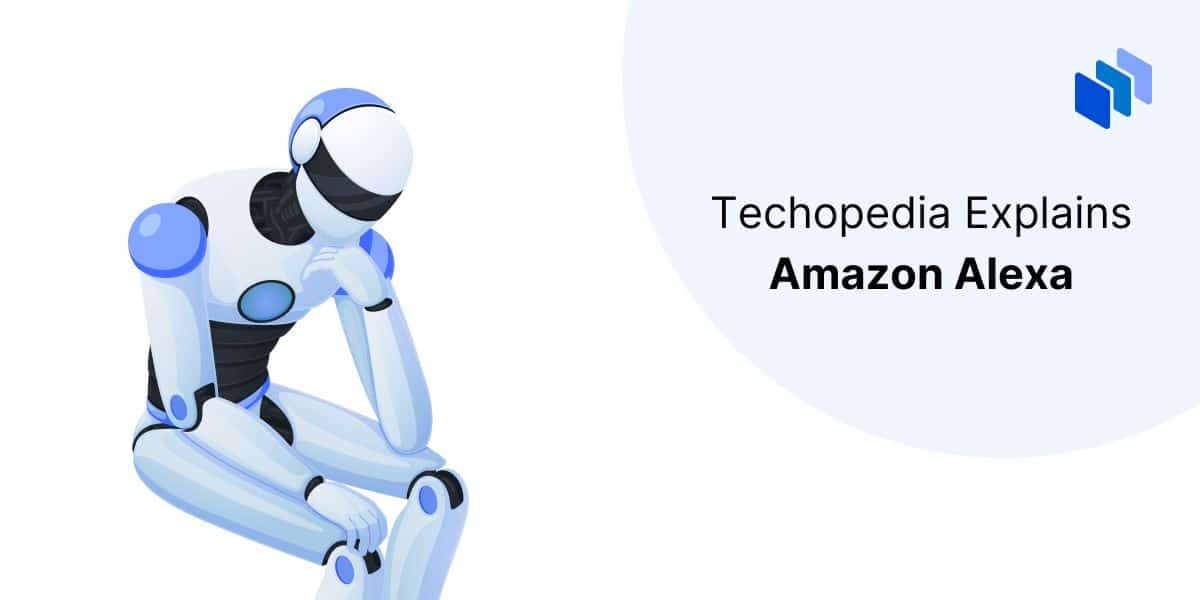What is Alexa?
Alexa is a cloud-based voice assistant developed by Amazon, which allows users to ask questions or issue commands to Amazon Echo devices in natural language. It is available on over 100 million devices from the vendor and various third-party manufacturers.
Today, the assistant is used in a range of electronics ranging from speakers and headphones to computers, TVs, vehicles, and smart devices in the home and office, and offers users the ability to interact with their devices remotely.
Alexa is one of the most widely used virtual assistants in the world, having 71.6 million users as of 2022, just behind Google Assistant with 81.5 million and Siri with 77.6 million.
How Does Alexa Work?
Users with an Amazon account and an Alexa-enabled device can connect their devices to the Internet. Once connected and configured, the device will listen for the user to utter a wake word, which puts the virtual assistant into listening mode.
On Amazon Echo devices, users can select the wake word from a number of options, including Alexa, Amazon, Computer, Echo, or Ziggy.
Once the virtual assistant enters listening mode, it will await further natural language input from the user in the form of a question or command.
After the user asks a question or issues a command, Alexa uses natural language processing (NLP) to process the user’s speech, sending the audio to the Alexa Voice Service, an automatic speech recognition (ASR) and natural language understanding (NLU) solution, which converts the audio into text, to understand the user’s request.
It then returns a response to the user, either answering their question or providing the requested content or action.
If the action can’t be completed, a message such as “I’m sorry, I can’t do that” will be returned to the user.
Examples of Alexa Commands
Alexa has the ability to respond to a vast range of voice commands, from telling users what day it is and what the weather’s like outside to opening apps like Netflix and YouTube, playing films, and interacting with smart devices in the local environment.
The amount of commands supported depends on the apps and devices that you have access to in your home or office environment.
While there are too many variations of commands to provide an exhaustive list, here are some high-level examples to illustrate the virtual assistant’s core capabilities, formatted with the wake word “Alexa” and then the user’s request.
- Alexa, what day is it today?
- Alexa, what’s the weather like today?
- Alexa, set an alarm for [time].
- Alexa, call [name].
- Alexa, what’s the date today?
- Alexa, play [artist/song/album].
- Alexa, watch [title/film/video].
- Alexa, open [App].
- Alexa, order [Amazon item].
- Alexa, request a ride from Uber.
- Alexa, dim lights by 25%.
- Alexa, lock the front door.
- Alexa, turn off/on [device].
- Alexa, tell me a joke.
Alexa LLM
In September 2023, Amazon announced the launch of a new Alexa voice assistant powered by the Alexa large language model (LLM). The organization is aiming to use generative AI to better infer context from users’ natural language requests and to upgrade Alexa’s overall conversational capabilities.
The LLM will also enable developers to integrate content and APIs to create additional conversational capabilities on Alexa-enabled devices.
Amazon also announced that it is upgrading its ASR system with a new multi-billion-parameter ASR model, which has been trained on utterances and longer-form conversations.
Controversy Over User Privacy
In the past, Amazon has drawn criticism for Alexa for recording user’s voices and always listening to their activities.
While Amazon claims it collects user data to improve performance and better adapt to a user’s voice and preferences, researchers have discovered that the data gathered from user’s smart speakers has been used to target them with ads.
That being said, Amazon offers users the ability to delete voice recordings via natural language input and gives users the ability to choose how long they want their voice recordings to be stored.






